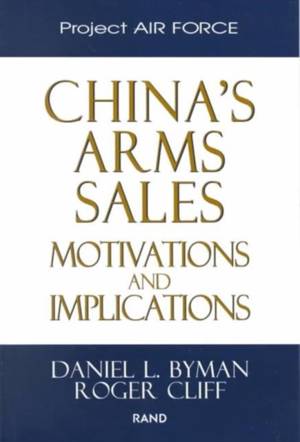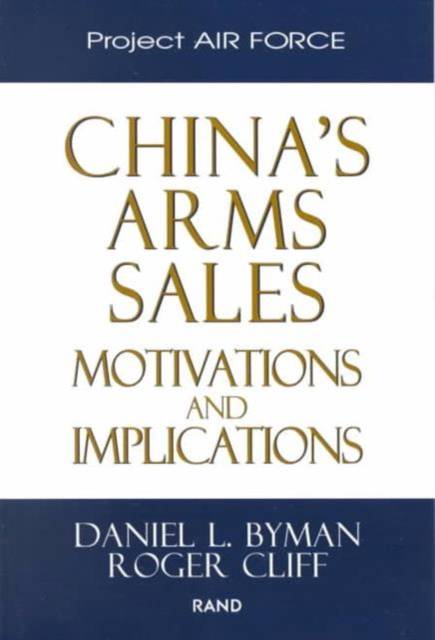
- Afhalen na 1 uur in een winkel met voorraad
- Gratis thuislevering in België vanaf € 30
- Ruim aanbod met 7 miljoen producten
- Afhalen na 1 uur in een winkel met voorraad
- Gratis thuislevering in België vanaf € 30
- Ruim aanbod met 7 miljoen producten
Zoeken
€ 25,95
+ 51 punten
Omschrijving
China's arms sales have become the focus of considerable attention and pose a moderate threat to U.S. interests. Although Chinese sales have fallen in recent years, and Beijing has become more responsible in the transfer of nuclear, biological, and chemical (NBC) technologies, much progress will be needed to curtail China's behavior. Principal recipients of Chinese arms have been Iran, Iraq, Myanmar, North Korea, Pakistan, and Thailand. These countries and others seek Chinese weapons because they are available, cheap, and easy to use and maintain. In addition to missiles, the Chinese are willing to transfer NBC technology. The United States and other countries do have a modest ability to influence Chinese behavior, and China has increasingly wished to be viewed as a responsible world nation. The analysis supports three major findings about China's arms sale behavior: (1) China's arms transfers not motivated primarily to generate export earnings but by
Specificaties
Betrokkenen
- Auteur(s):
- Uitgeverij:
Inhoud
- Aantal bladzijden:
- 59
- Taal:
- Engels
Eigenschappen
- Productcode (EAN):
- 9780833027764
- Verschijningsdatum:
- 4/01/2000
- Uitvoering:
- Paperback
- Formaat:
- Trade paperback (VS)
- Afmetingen:
- 157 mm x 228 mm
- Gewicht:
- 117 g

Alleen bij Standaard Boekhandel
+ 51 punten op je klantenkaart van Standaard Boekhandel
Beoordelingen
We publiceren alleen reviews die voldoen aan de voorwaarden voor reviews. Bekijk onze voorwaarden voor reviews.











